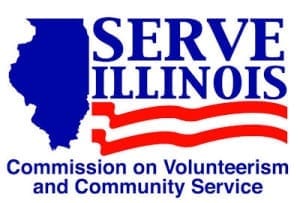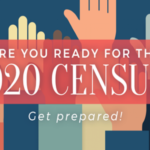COVID-19 and the Engaged Campus
UPDATED APRIL 24, 2020
As an opportunity to connect, we would like to invite you to weekly Zoom calls with Campus Compact Illinois starting this Friday April 3. This call is an open opportunity to support/share strategies and resources during this time of social distancing. The goal is to support each other, see how things are going, what’s needed, and what campuses are doing to maintain civic and community engagement in Illinois. Members and non-members welcome.
As the novel coronavirus (COVID-19) continues to spread, more and more higher education institutions are taking steps to protect their students, employees, and communities. These steps have unique implications for community-engaged campuses trying to meet the civic mission of higher education. Campus Compact is gathering resources to help member campuses consider these implications.
Always consult health authorities first for the best information on risk and recommended precautionary steps. Do not rely on social media posts for information. Updates are available from local and state public health departments (Illinois and Chicago) and the Centers for Disease Control and Prevention (CDC), including updated Travel Notices for countries with community transmission.
Community-engaged work
Some campuses have chosen to close campus and/or move to only online classes for some period of time. Inside Higher Ed recently posted this roundup of closures and other announcements. This will have implications for community-engaged courses and projects. The best way to start making contingency plans is to reach out to all community partners. Set up a time to talk through possibilities if classes are cancelled and ask how it would impact their work. An overall communications plan that covers different contingencies is a great way to make sure you and partners are prepared. Also consider including a key contact for community partners with questions on the web page or email response that your campus shares about the issue.
Even if campuses do not close or go online, community partners may have changes to who they can have at their site or there may be other disruptions to planned projects. Communicate with everyone to check in regardless of the status of your campus and start developing contingency plans. Also ask how the response is impacting the services they provide and consider shifting your resources to the areas where they most need support, even if that doesn’t align with your original goals. Flexibility and communication are key to maintaining partnerships. St. Olaf College and Carleton College created this survey for their local partners to gather information jointly.
Community engagement professionals and others can support faculty in shifting their course plans. Some projects may be able to continue online or in a condensed format. Others may need to be postponed. This spreadsheet offers great resources for online teaching as faculty consider how to continue to meet educational goals in a different context for ALL students.
Ideas from other campuses that have moved to online instruction:
- Depending on the situation, it may be possible for many service-learning, internship, and clinical placements to continue even as classes go online
- Communicate one message to community partners about what to expect and who to contact
- Encourage faculty to reach out to partners right away to explore options, many project may be able to continue virtually or partners may have other work that can be done online (see below for ideas)
Community-engaged travel
Many campuses have already restricted international travel and brought students back from semesters abroad in affected countries. Some are also beginning to restrict domestic travel. If spring break or other service trips are planned, proactive communication with host communities is key. Consult public health authorities in that area for the latest information.
Supporting students and employees
As campuses consider closing or shifting classes online, low-income students will need extra support to ensure they can continue to be successful. These students may not have a place to go if dorms close, food to eat if cafeterias close, or the technology to participate in online classes. It is important to advocate for the resources these students will need. This can include:
- Seeking philanthropic resources to provide temporary housing and food support to students
- Setting up a resource center to connect students to community housing, food, health care, mental health support, and other resources
- Offering loaned laptops, wifi hot-spots, and other technology resources needed for online classes
- Adding to existing emergency funds or creating one to support students who may be impacted by job losses, school closures, and other unexpected issues
Student Resources compiled by Newman Civic Fellow Heather Atherton from Wilbur Wright College
Students may also face additional mental health concerns during this time. Here are some great resources on mental health and coping with the situation.
In addition to students, campuses also have many hourly employees who would be significantly impacted by a campus closure. Advocate for them to have access to sick leave, emergency funds, and community resources as well.
Bias and discrimination
Unfortunately, this public health emergency has brought out bias, discrimination, and hate in some, including racists attacks. It’s important to proactively remind ourselves and others around us not to project fears of the virus onto marginalized groups or spread unfounded associations. People of Chinese heritage or those who look East Asian are not genetically predisposed to carry or spread the disease. It’s important to pay attention to what is happening on your campus to be able to respond quickly to any attacks or statements that may impact whether all students are welcome on your campus (here’s a great poster from the Minnesota Department of Health). There are a number of resources on responding to incidents of hate on campus, including this one from the Chronicle of Higher Education. These incidents also offer an opportunity to engage students in dialogue about racism and xenophobia. Make this a “teachable moment” in your classroom with our local and national dialogue resources.
Virtual Engagement Ideas:
In some cases, students’ community-engaged work may be able to shift in ways that still meet community needs and learning outcomes. Here are a few ideas:
- conducting background research or gathering best practices or other information requested the partner(s)
- taping, recording, or streaming performances or workshops to benefit community partner(s)
- creating digital and other social media content, print program materials, or other methods for information-sharing
- undertaking assessment, evaluation, or feedback via phone or web-based services;
- offering (or compiling, researching, or brainstorming) strategies that provide indirect support from volunteers as a result of coronavirus
- conducting virtual or phone-based educational supports for youth and adults
 The Serve Illinois Commission is compiling volunteer opportunities and accepting donations of PPE for the state of Illinois. More information on that can be found on their website at www.Serve.Illinois.gov.
The Serve Illinois Commission is compiling volunteer opportunities and accepting donations of PPE for the state of Illinois. More information on that can be found on their website at www.Serve.Illinois.gov.
If work with an existing partner is not possible, you may be able to find suitable opportunities through these channels:
- How to Get Involved with Virtual Volunteering
- VolunteerMatch
- AllForGood
- 9 PLACES TO VOLUNTEER ONLINE (AND MAKE A REAL IMPACT)
- Cyber Seniors
General Resource Links:
- Centers for Disease Control (CDC) COVID-19 Hub
- COVID-19 FAQs
- Preventing COVID-19 Spread in Communities
- CDC COVID-19 Communication Resources
- CDC Educational Videos
- CDC Guidance on Travel
- CDC Travel FAQs
- Department of State Guidance on Travel
- State of Illinois COVID-19 Response
General Higher Education Resource Links:
- Colleges and the Coronavirus online forum Friday, March 13th
- With Coronavirus Keeping Them in the U.S., International Students Face Uncertainty. So Do Their Colleges
- As Coronavirus Spreads, the Decision to Move Classes Online Is the First Step. What Comes Next?
- Supporting #RealCollege Students During COVID19
- Planning for Coronavirus With Fewer Resources
- How to close colleges without hurting vulnerable students
- As college students leave campuses over COVID-19, new considerations arise
- Community partner survey from St. Olaf College and Carleton College
- Student relief fund
Teaching Resource Links:
- Remote Teaching Resources for Business Continuity
- Teaching Remotely in Times of Need presentation, Torrey Trust, Ph.D., University of Massachusetts Amherst
- Instructional Continuity, San Francisco State University
- Reflection questions from Loyola University Chicago Center for Experiential Learning
- Resources for moving dance-based pedagogy online
- Keep Teaching: DURING PROLONGED CAMPUS OR BUILDING CLOSURES, Indiana University
- Pivot Your Course Online FAQ
- Community Engaged Teaching during Suspension of Face-to-Face Classes
- Advance HE Webinar: “Utilizing Service-Learning Projects in an Online Class”
- Continuing community engaged teaching during COVID-19
- Building a Community of Learning, Southern New Hampshire University
- Advance HE Webinar: “Utilizing Service-Learning Projects in an Online Class”
- Teaching an Online Social Action Course webinar 3/13/20
- Cool Tools & Apps for Education
- Community Based Learning in times of Social Distancing, Isolation and Quarantine
- Online Teaching Resource – ARNOVA
Other Resource Links:
- 10 Tips for Better Virtual Meetings
- When Fear Of The Coronavirus Turns Into Racism And Xenophobia
- 5 Things to Know About Coronavirus and People With Disabilities
- A few things for nonprofits and foundations to consider in light of the Coronavirus
- NPR’s Code Switch podcast published an episode on “When Fear Of The Coronavirus Turns Into Racism And Xenophobia”
- Preparing your volunteer program for COVID-19, Minnesota Association of Volunteer Administrators
- Pod mapping for mutual aid
- Education Companies Offering Free Subscriptions
- Blog , Blog Posts , News , News
 News
News 

